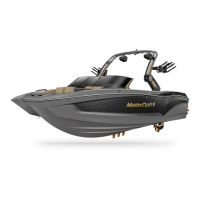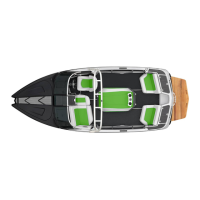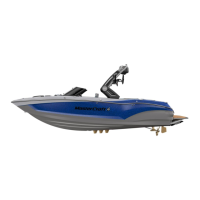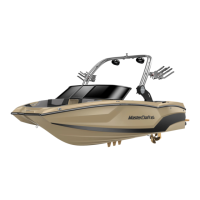2016 OWNERS MANUAL / 0395
Braking System
Disc brakes offer several advantages over drum brakes. Disc
brakes have improved resistance to fade on downhill grades. They
are self-adjusting, so as the pads wear, braking efficiency is not
reduced. This type of brake recovers quickly after being submerged.
They also require less maintenance, are easier to flush out, and are
less susceptible to water-induced corrosion. The trailer’s brakes are
designed to energize automatically when the tow vehicle’s brakes
are applied. These are known as “surge brakes.”
NOTE: Some jurisdictions do not allow surge brakes. Always check
within the locality in which you will be towing.
When the vehicle slows down or stops, the forward momentum
(surge) of the trailer against the hitch ball develops hydraulic pres-
sure in a master cylinder inside the trailer brake actuator. Hydraulic
lines are used to transfer pressure to the brakes and engage them.
In most states, trailers with a Gross Vehicle Weight Rating (GVWR)
of 1,500 pounds or more are required by law to have brakes on all
wheels. (Auto manufacturers generally recommend brakes even
with lighter trailers.)
Trailer brakes must be maintained in good working condition at all
times. Inspect the brake system on a regular basis and verify prop-
er fluid level in the actuator. The loss of adequate braking could
result in serious injury or death and/or property damage.
The trailer is equipped with a hydraulic brake actuator. Trailer brakes
will automatically apply whenever the tow vehicle’s brakes are applied.
Stopping (deceleration) force is developed in direct proportion to the
stopping force generated by the tow vehicle.
The breakaway system actuators will apply the trailer brakes if the
trailer becomes completely detached from the tow vehicle while under
power. Failure to properly connect the breakaway system prior to
towing may result in serious injury or death and/or property damage.
(See breakaway cable detail earlier in this section of the Owner’s
Manual.)
The breakaway cable is a line of defense at separation. Before the
breakaway cable is pulled, the coupler must become detached from
the hitch ball and then the safety chains fail. At this time the
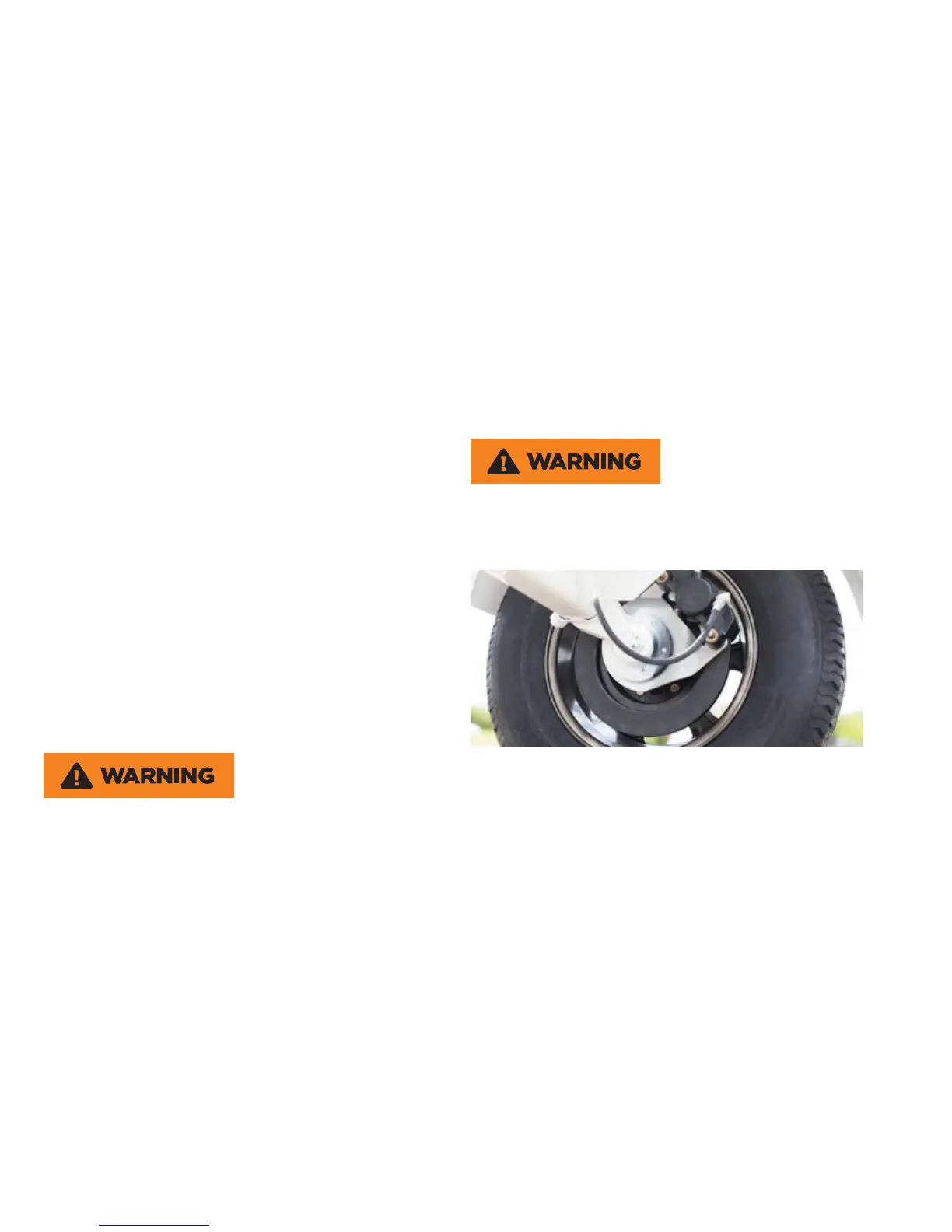